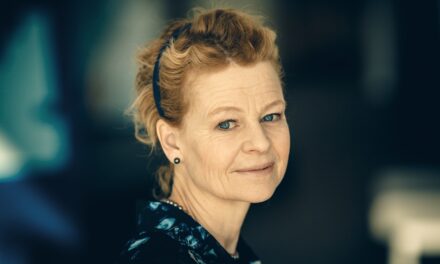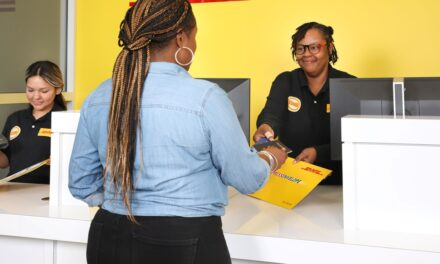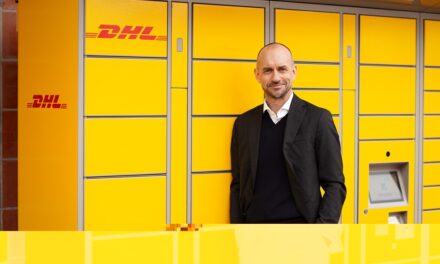
Deutsche Post DHL Q2 earnings stabilise
“We are demonstrating strength in crisis.” That was the message from Deutsche Post DHL’s Frank Appel as the CEO gave his verdict on the company’s second quarter results for 2009. “We are demonstrating strength in crisis.” That was the message from Deutsche Post DHL’s Frank Appel as the CEO gave his verdict on the company’s second quarter results for 2009.
The Group reported underlying EBIT of €257m in the second quarter of 2009, helped by cost-reduction efforts that showed positive effects mainly in the EXPRESS Corporate Division, but predicted a gloomy outlook for the rest of the year.
Deutsche Post DHL said it has succeeded in cushioning the effects of the global economic crisis through its comprehensive cost-cutting program and stabilised earnings in the second quarter. Before non-recurring effects, all corporate divisions were profitable in the second quarter with DHL and Deutsche Post contributing nearly equal amounts to operating earnings.
Compared with last year, earnings fell 37.8% as a result of the global economic crisis. Revenue decreased by 17.7% to €11.1bn in the second quarter.
Reported EBIT on the Group level also decreased from €366m in the previous year to €109m. The Group has based its planning for 2009 on a scenario that does not foresee a significant improvement in global trade in the coming months. Taking that into account, Deutsche Post DHL expects underlying EBIT to reach €1.2bn for the full year 2009.
"Our first-half figures prove that our vigorous cost-cutting efforts are having a tangible impact throughout the Group and we cannot let up now," Appel.
"We're successfully navigating through the crisis. What's crucial is that we have not only taken short-term steps but are also sustainably strengthening both pillars of the Group – mail and logistics – as part of our Strategy 2015.
This is all the more important, as we still don't have a clear view of the further economic development. Though economic conditions haven't worsened – with new business bustling and our strong market position in Asia – we are not yet seeing any substantial improvement."
Overall, the savings generated in the first half of the year by the cost-cutting program IndEx totalled an annualised €413m. Since the start of the program, total annualised savings have amounted to €552m. As a result, the Group is confident that it will reach its goal of saving €1bn in indirect costs already in the second quarter of 2010. The Group's original goal was by the end of 2010.
Net income and cash flow in the second quarter
Net income after minorities dropped to €66m in the second quarter from €231m in the year-earlier period. Earnings per share declined to 6 cents from 19 cents. Earnings were negatively affected by the decline in business as well as a lower follow-up valuation of the put options on Deutsche Postbank AG shares.
Free cash flow increased to €839m from €285m. The reasons were lower investments, a reduction in working capital and the sale of Deutsche Bank AG shares.
First-half results
Revenue in the first half of the year declined 15.3% to €22.58bn. Reported EBIT declined 85% to €136m, while underlying EBIT dropped 40.2% to €569m. Net income after minorities amounted to €1.01bn in the first half after €614m a year earlier due to a higher valuation of Postbank put options in the first three months of the year. Earnings per share rose from 51 cents to 84 cents.
MAIL Corporate Division
The MAIL Corporate Division saw a further deterioration of results in the second quarter. Revenue declined 6.7% to €3.21bn. Underlying EBIT fell 38% to €171m because of significantly higher wages and €15m in bad debt following the insolvency of department store and mail-order company Arcandor.
As part of its Strategy 2015, the MAIL Corporate Division has introduced a comprehensive program to make the business fit for the future. The program aims at reducing costs in a sustainable way and broadening the services portfolio to include products such as the "Letter on the Internet", which meet customers' needs in the future. In the first half alone, the MAIL division reduced costs by €180m, with the total EBIT effect expected to amount to around €300m this year.
EXPRESS Corporate Division
The EXPRESS Corporate Division was able to reduce costs faster than planned, with the result that lower volumes were largely offset. With €65m, underlying EBIT in the second quarter almost matched the level of the previous year, when underlying EBIT amounted to €66m. Revenue at the division declined 28.6% to €2.51bn.
In terms of cost cutting, further progress was made mainly in the United States. Here, the Group is confident that despite the economic crisis, it will be able to reduce losses on an annual basis to below $400m in the fourth quarter of 2009.
GLOBAL FORWARDING, FREIGHT Corporate Division
The GLOBAL FORWARDING, FREIGHT Corporate Division was able to benefit from the economic crisis and win significant new business, particularly in the life science, fashion, industrial project business, high tech and automotive sectors.
Still, an overall declining demand, particularly in the technology and engineering sectors, as well as lower freight rates and fuel surcharges prompted a decline in earnings and revenue in the second quarter. Underlying EBIT amounted to €79m compared with €103m a year earlier. Revenue fell 27% to €2.57bn.
SUPPLY CHAIN Corporate Division
In contract logistics, Deutsche Post DHL continued to add contracts with a total volume of around €250m in the second quarter, despite the weak business climate. The contract renewal rate remained around 90%. The bankruptcy filing of the department store and mail-order group Arcandor had a negative impact during the second quarter. As a result, assets were reduced by €13m. In addition, the Arcandor insolvency led to bad debt losses of €12m.
In the second quarter, underlying EBIT in the SUPPLY CHAIN Corporate Division amounted to €16m compared with €64m in the previous year as a result of the unexpected impact of the Arcandor insolvency. Revenue fell by 8.8% to €3.06bn.
Outlook
Business development in the second quarter confirms our view, expressed after the first quarter, that in percentage terms volume declines may have seen the bottom. Still, the Group doesn't expect a substantial recovery in world trade in coming months. This scenario includes continued risks to individual customers and industries, be it insolvencies or extended factory closures.
In all our divisions cost-cutting initiatives are being executed, which are by now successfully taking hold. Taking these factors into account, Deutsche Post DHL expects to reach full-year underlying Group EBIT of €1.2bn. The positive effects resulting from the Postbank transaction should lead to a return to a positive net income, a significant improvement compared with 2008.













